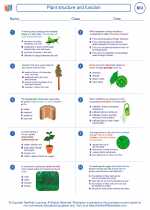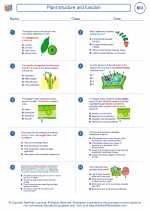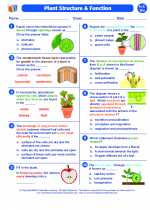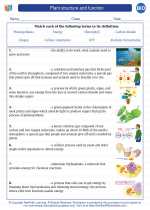Parasites
Parasites are organisms that live in or on another organism (the host) and benefit at the host's expense. There are various types of parasites including protozoa, helminths, and ectoparasites such as fleas and ticks.
Types of Parasites
There are several types of parasites:
- Protozoa: Single-celled organisms that can cause diseases such as malaria and giardiasis.
- Helminths: Worm-like organisms including flatworms and roundworms that can infect the gastrointestinal tract or other organs.
- Ectoparasites: Parasites such as fleas, ticks, and lice that live on the surface of the host's body.
Life Cycle of Parasites
Parasites have complex life cycles that often involve multiple stages and different hosts. The life cycle may include stages such as egg, larva, nymph, and adult, and may involve intermediate hosts where the parasite develops before infecting the final host.
Effects of Parasites on Hosts
Parasites can cause a range of health issues in their hosts, including nutrient deficiencies, organ damage, and the transmission of diseases. In some cases, parasites can be fatal if left untreated.
Study Guide
Here are some key points to remember when studying parasites:
- Understand the different types of parasites and examples of diseases they cause.
- Learn the life cycle of common parasites and understand the stages involved.
- Explore the effects of parasites on host organisms and the mechanisms by which parasites cause harm.
- Review methods of preventing and treating parasitic infections, including medications and hygiene practices.
Remember to use diagrams and visual aids to help you understand the complex life cycles of parasites and their effects on host organisms.
.◂Biology Worksheets and Study Guides High School. Plant structure and function

 Worksheet/Answer key
Worksheet/Answer key
 Worksheet/Answer key
Worksheet/Answer key
 Worksheet/Answer key
Worksheet/Answer key
 Vocabulary/Answer key
Vocabulary/Answer key
 Vocabulary/Answer key
Vocabulary/Answer key
